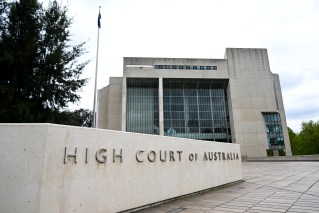Buck stops with PM’s inaction
Former Reserve Bank board member Professor Warwick McKibbin has criticised the Federal Government over its economic performance just weeks out from its all-important second budget.
Professor McKibbin said the Government’s inability to pass major reforms has forced the Reserve Bank to cut the cash rate lower than it should have.
“The reason for cutting rates is to try and bridge the gap between falling commodity prices and the restructuring of the Australian economy,” he told ABC’s The Business.
“The Reserve Bank has some role in that, but the biggest role should be with the Federal Government in the fiscal accounts.”
He said he was concerned that the cash rate, at its current 2.25 per cent, was pushing up asset prices, particularly stocks and property values, which would lead to problems down the track.
“You create an economy which has a lot of misallocation of capital, [and] eventually you have to clean up the mess afterwards,” he said.
On whether the blame lies with the Government for the current record-low level of interest rates and the asset bubbles they have created, he said he believed the Government “and the parliament should have acted”.
He was not sure whether the Reserve Bank would cut again in May, following the stronger-than-expected employment figures for April which indicated that perhaps the economy was starting to adjust.
He added he has serious doubts about the Abbott Government’s plans for fiscal repair.
“These short-term budget cycles are really quite dangerous because they introduce bad policy processes,” he said.
He said an example of this was the possibility raised this week of two corporate tax rates, which would add unnecessary complexity to the system and achieve little.
‘Monetary policy cannot fix structural problems’
Professor McKibbin said the Government had to get serious on structural reform so the Reserve Bank was not left trying to support the economy with the only lever it has.
“The deep problems we have are structural, and in the end monetary policy can’t achieve what is required,” he said.
“So this is a serious debate that needs bi-partisan consensus.”
There is some urgency, with the global economy heading towards very choppy waters as China’s growth slows, the US Federal Reserve set to raise rates for the first time since the GFC, and Greece heading for another disaster.
The failure of Australia to establish a sovereign wealth fund has unnecessarily left Australia vulnerable to big shakedowns in the global economy, including plunges in iron ore prices.
Professor McKibbin said the budget bottom line did not have to be so vulnerable.
“We’ve designed a system which doesn’t deal with those high volatility commodity prices,” he said.
“We should have a sovereign wealth fund and we don’t.”
He said most sensible far-looking economies managed the volatility in commodity prices and their impact on government revenues.








